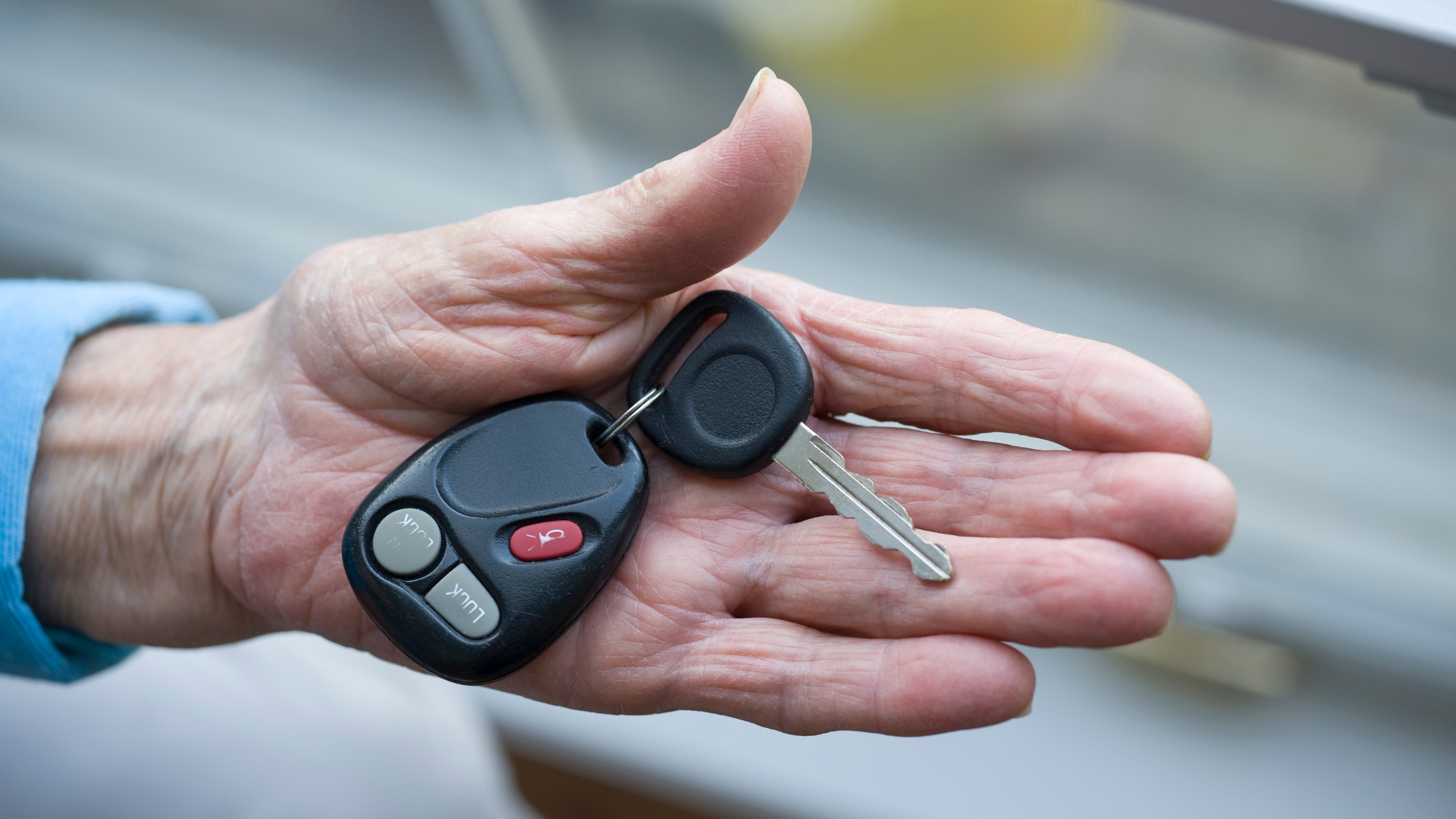No More Driving: How to Talk to a Loved One with Cognitive Decline
Written by TYE Medical on Jan 8th 2025
Driving no more due to cognitive decline is a delicate decision and a difficult topic for family and friends of those in danger on the road. And it’s not just about age, because a wife in her mid-seventies can become concerned about her husband’s driving abilities. It’s not just a matter of physical ability. Eyesight can be fine, and reflexes okay. But the trouble can be the mental processing and interpretation of visual cues required to make the right choices when driving.
Perhaps you have noticed your loved one wavering in a lane (for no apparent reason), becoming disoriented in a parking lot, struggling to decipher medians, or misjudging turns into oncoming traffic. If so, it’s time to talk about making the wise decision to hang up the car keys. Here you’ll find some advice on how to do this delicately and respectfully.
Stay Alert and Voice Your Concern Early

Cognitive decline or impairment refers to someone who is in the process of losing thinking skills. Even if your loved one is physically seeing correctly, meaning there is nothing wrong with their vision when wearing corrective lenses, the issue may be how they are processing those images and making decisions if thinking is impaired.
However, this doesn’t mean that anyone diagnosed with a type of cognitive impairment should immediately stop driving. Each person experiences cognitive decline differently. That’s why it’s important to observe your loved one and understand what areas of their brain and thought processes are affected. And then consider how those changes are affecting their driving abilities. Early, mild cognitive impairment is likely not to affect driving skills.
But if your loved one has been diagnosed with Alzheimer’s or dementia, it’s inevitable that the progressing disease will eventually affect driving ability. Because of this, you will be facing a difficult conversion that affects your loved one’s independence. More than likely, your aging family member is also dealing with other types of losses, making this a more sensitive issue.
It might be best to begin talking about driving as soon as your loved one is diagnosed. Be upfront about both of you staying alert to potential problems and being honest with one another. Verbalize the inevitable outcome that eventually key must be relinquished for their safety and that of others. You may even choose to come to an informal agreement that will make the next step less traumatic or dramatic.
How to Start the Conversation About No More Driving

If you’ve already had the preliminary discussion upon diagnosis and have an informal agreement, this part of the process should go more smoothly. You can gently ask your loved one to recall when you discussed this issue. Then respectfully and calmly share your observations, awaiting a reaction. Be sure to include suggestions about ways she can maintain some independence by making arrangements for several of her usual outings and personal business.
It is crucial to come to the conversation with a plan for how your senior will continue to be active. Offer your availability and perhaps that of at least one other person. Arranged transportation like Uber or Lyft may be acceptable and appropriate under specific circumstances. While your senior may not be able to keep her routine or schedule exactly, showing her that you’re making an effort to keep her active and engaged is extremely helpful.
For more information on how to talk to your senior with cognitive decline about not driving, view information provided by the Alzheimer's Association.
What to Do When a Senior Won’t Stop Driving

It might be helpful to have other caregivers, friends, or family voice their opinion as well. This can give your senior confidence that your perspective is accurate even if they don’t see the problem. If this approach doesn’t help your loved one turn over their car keys and accept that there is no more driving, then perhaps arrange for a driving test. This objective reality might help them see the situation more clearly, as the news is coming from an expert that is not part of the family.
It’s possible that your senior will refuse to accept that his cognitive decline has reached a point that makes driving unsafe. In this case, you may have to take control of the car keys. You can make the car keys inaccessible by hiding them or keeping them with you. If your loved one is determined to circumvent the issue, he may look for the keys and even find them. Some families have to take more drastic measures in these cases. If you want to ensure there is no way for your senior to drive, you may have to remove the car battery or even disconnect wires to keep him from leaving. If you have the legal authority, you could remove the vehicle from the property.
While no one wants to go to these “extremes” it is the only reasonable recourse to keep your senior and others on the road safe.
Helping Your Senior Accept Big Changes

Not all seniors with cognitive decline stubbornly resist the loss of independence, but some do. Just remember that your role is to lovingly protect and sometimes that means going against your senior’s will. To accomplish this, carefully observe effects on driving skills and begin the driving discussion soon after their diagnosis of cognitive decline (including dementia or Alzheimer’s). When the time comes, be ready with a plan for how they can continue being active and keep at least some of their routine. And if your senior isn’t agreeable and insists on driving, be prepared to take more direct action for their good and for the others on the road. This may require securing keys or disabling a vehicle to ensure safety.


